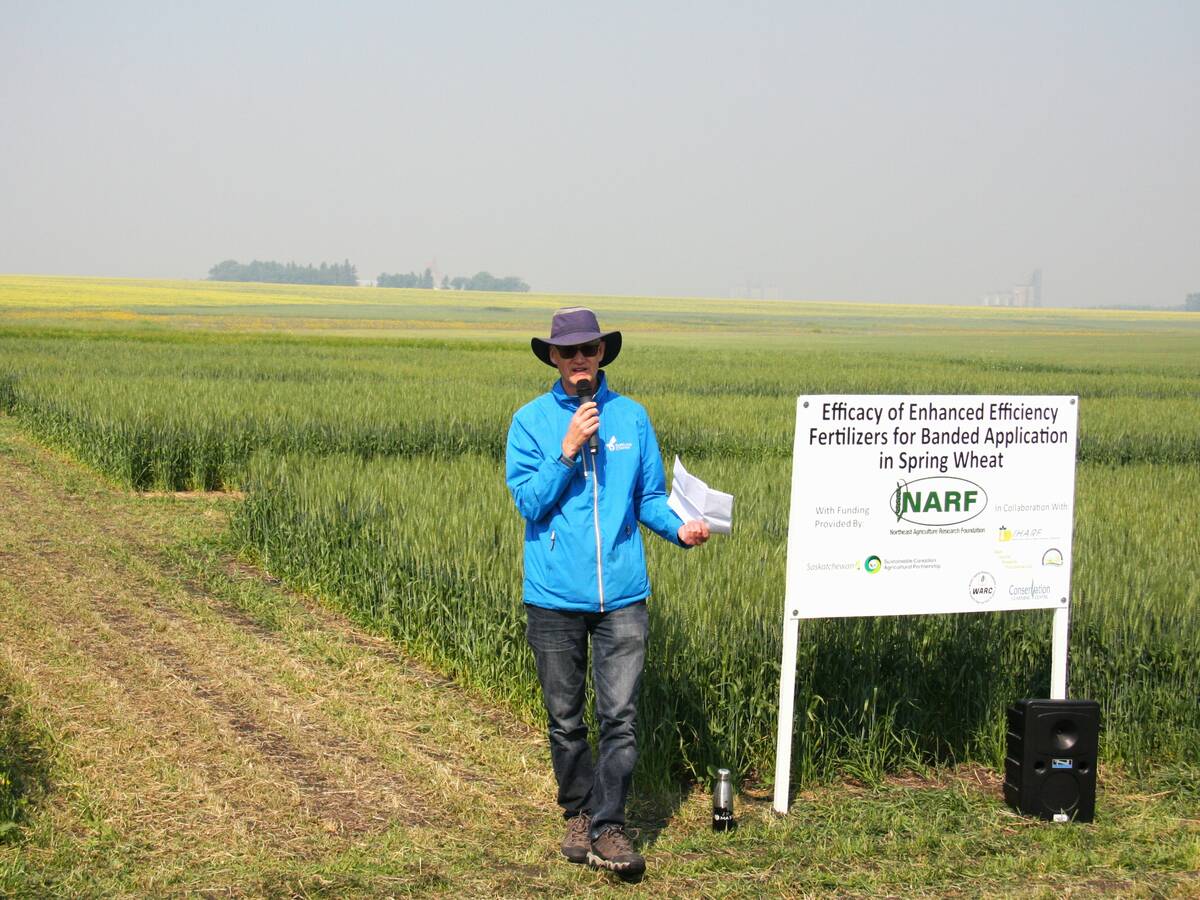SASKATOON — Chris Vervaet’s well-deserved vacation was short-lived.
“My phone blew up as I was fishing off the dock, trying my luck,” said the executive director of the Canadian Oilseed Processors Association.
The texts were about the changes to the 45Z Clean Fuel Production Credit contained in U.S. president Donald Trump’s One Big Beautiful Bill.
Read Also

Fertilizer method’s link to emissions studied
A researcher says others studying greenhouse gas emissions aren’t considering how the loss of nitrogen into the atmosphere correlates with fertilizer application or if there is an impact to yield.
Vervaet had to put down his fishing rod and spent the rest of the afternoon texting back and forth with COPA members.
The consensus was that they were very pleased with how things landed on the 45Z tax credit.
The revised rules include a requirement that only North American feedstocks, including Canadian canola, can benefit from the tax credit.
They also remove the Indirect Land Use Change (ILUC) factor from the carbon intensity calculation, which greatly improves canola’s score.
“In layman’s terms, we are in the money,” said Vervaet.
The bill has been enacted into law by Trump, and now the various departments and agencies that administer the 45Z tax credit must enshrine the changes into regulation or guidance.
COPA believes the changes should take effect by 2026.
Time is of the essence because canola oil does not qualify as an eligible feedstock under the existing 45Z rules.
“We have seen our exports and the use of canola oil in the U.S. biofuels basically drop off a cliff,” said Vervaet.
The U.S. biofuel sector consumed 796 million pounds of canola oil during the first five months of 2025 compared to 1.76 billion lb. for the same period a year ago. That is a 55 per cent drop.
The changes to 45Z should soon reverse that trend.
However, there is always a “but” when it comes to the ever-changing U.S. biofuel sector.
This time around it is the U.S. Environmental Protection Agency’s proposed rule to set the 2026 and 2027 Renewable Fuel Standard’s (RFS) renewable volume obligations.
That proposed rule contained some really good news and some really bad news for Canada’s canola processors.
The good news is the EPA set the biomass-based diesel mandate (which includes biodiesel and renewable diesel) to 5.61 billion gallons for 2026 and 5.86 billion gallons for 2027.
It is a massive increase from the 3.35-billion-gallon mandate for 2025 and is even higher than the 5.25 billion gallons that a coalition of oil and biofuel groups had been lobbying for.
Vervaet said that will go a long way toward realigning demand with supply.
“They’re finally correcting a longstanding error,” he said.
However, the proposed new rule also states that any feedstock from outside the United States will only be eligible for half of the credit value under the RFS.
“That is a significant potential headwind for us going into 2026,” said Vervaet.
Fortunately, it is still a proposed rule. The final rule is expected by the end of October.
COPA is hopeful the EPA will align itself with the shift that happened with the 45Z tax credit, creating a carve-out for North American feedstocks.
Vervaet hopes administrations in both the U.S. and Canada remember why biofuel programs were created in the first place, which was to provide another outlet for farmers’ grain and encourage rural development.
There is one powerful organization south of the border that is at odds with COPA and other farm organizations.
The American Fuel and Petrochemical Manufacturers (AFPM) is voicing strong opposition to the latest biofuel proposals and policies coming from the Trump administration, saying they could undercut refining operations and fuel markets.
Argus Media obtained a letter that the association recently sent to House of Representatives speaker Mike Johnson and Senate majority leader John Thune.
“Recent policy decisions will negatively impact consumers, our members and the president’s energy dominance agenda,” the group stated in the letter, according to Argus.
AFPM said rising biofuel compliance costs, shifting feedstock dynamics and eroding margins are hurting U.S. refiners.
It criticized the EPA’s proposals to boost biomass-based diesel mandates while Trump’s budget bill restricts foreign feedstock eligibility under the 45Z tax credit.
AFPM said those policy changes could significantly alter sourcing patters for tallow, used cooking oil and soybean oil, according to Argus.


















